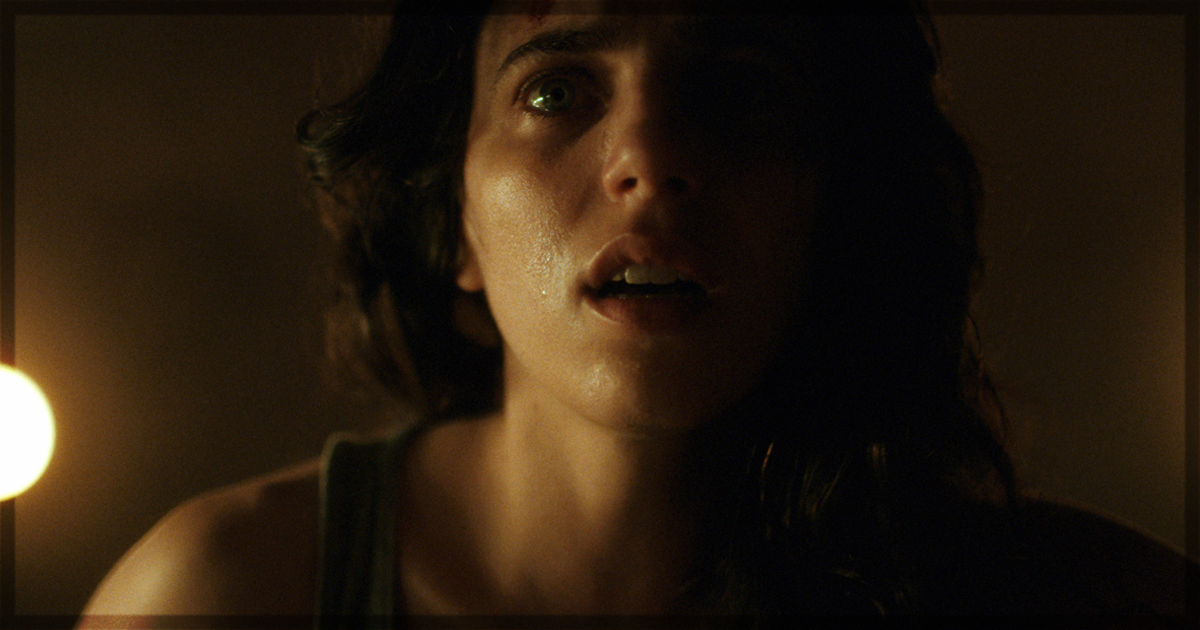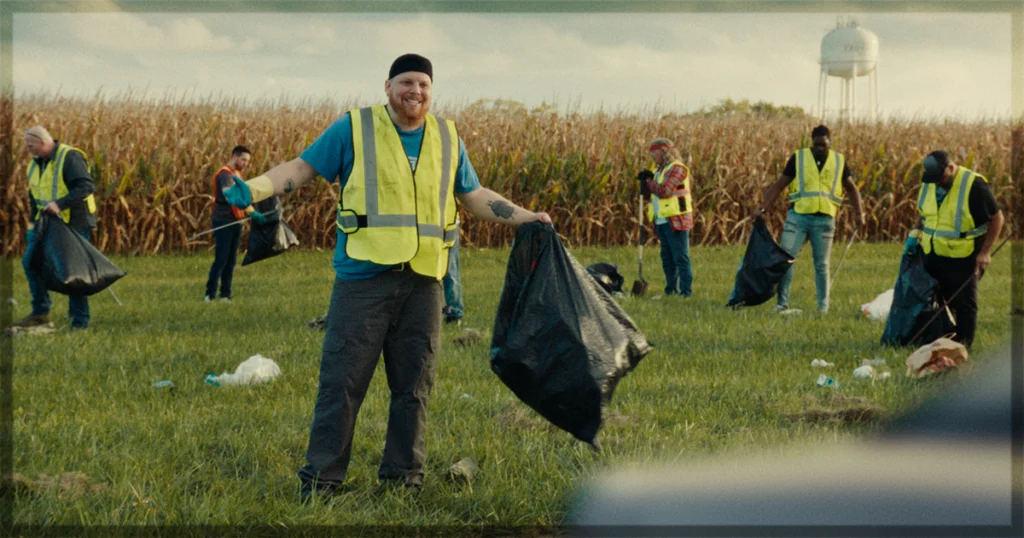Brock Bodell’s feature directorial debut, Hellcat, which made its world premiere at the 2025 Fantasia International Film Festival, is a chamber survival horror-thriller that manages to be effectively tense and visceral despite a premise that we’ve come across a few too many times before. Produced and shot entirely in Nashville, it is the kind of movie that specially heightens your senses, as if you’re trying to figure your way out of a rather dark, suffocating room.
At the center of the narrative, written while Bodell was living in Berlin, is Lena (played by Natural Disasters star Dakota Gorman), who is seemingly knocked unconscious and finds herself trapped in a moving camping trailer, all the while enduring a terrifying injury on her left arm that slowly begins to consume her. Distraught and anxious, she screams for help, but no one seems to hear her plead. Save for the disembodied voice of Clive (Todd Terry, of Breaking Bad), the man behind the wheel. Lena has a microbacterial infection that needs immediate treatment before it festers, says Clive. The driver insists he’s trying to help his unlikely passenger. He tells her to remain calm and keep her heart rate in control to prevent the infection from spreading. But relaxing is the last thing Lena can afford, especially as she has no memory of how she ends up locked in the seedy trailer. Which is further complicated by the fact that she’s pregnant, that another girl is chained to a bed inside the trailer, and that Clive is both observing them via surveillance camera. It’s decidedly apparent how Bodell has actual sympathy for both characters but also hints us that they shouldn’t be trusted so completely, just as the director holds the real threat captive, keeping the central horror as ambiguous as possible. Lena, as it turns out, is actually on the verge of becoming a werewolf, and Clive is a hunter kind enough to ease her into that insane transformation under the bright full moon, though that perceived kindness has its own layer.
The movie is at its most potent inside the trailer space, exhausting every tension and texture it can offer. Cinematographer Andrew Duensing takes advantage of the claustrophobia already afforded to him by the primary location, reflecting the central character’s swiftly changing psyche and the narrative’s direction, with set design and lights work that add to the tonal verisimilitude. The visuals also shift between stock footage aesthetic and flashbacks, which not only punctuate Lena’s current predicament but also fracture her sense of reality, as the physical malady increasingly grows and disturbs her. Beyond this, what is not captured by the handheld lens is translated by the soundscape, which is the technical highlight of this confined paranoia. From the get-go, the viewer is thrust into the disorienting sounds of vehicle tires rubbing against the pavement and the incessant rattling of the kitchenware, magnified by a vividly chilling score. Even the phone calls and radio talks double as a way for the movie to introduce more characters and reveal more details, though, to some extent, they tend to feel like last-minute insertions.
Grief is a transparent emotional anchor in Hellcat. The flashes of memories clue us in on Lena’s deep bond with her mother, who has since passed away, which then strains her relationship with her grieving father. She yearns for some maternal presence, even for a momentary encounter, especially now that she’s about to enter motherhood herself. Clive is equally racked with pain, guilt, and regret. His backstory complicates why he’s bent on helping Lena, even if that means sedating and trapping her in the back of his trailer. Terry captures this balance of fatherly care and pent-up frustration in a performance that already feels compelling and effective just by the soft and coarse touches of his acting voice alone. It is a wise decision that Bodell’s script eschews any physical contact, at least initially, between Lena and Clive, allowing us to decide for ourselves whether or not each character’s motivation cloaks something more sinister.
In this limited physical interaction is where Gorman brilliantly takes over. Her performance evokes an arresting physicality – animated by a heightened scent and a kind of feral, almost sensual, energy – that aches with the crippling resentment of someone, who has since forgotten the meaning of genuine kinship and affection, has towards herself. Through the consistent pathos that Gorman extends to the character, she poignantly tells us that Lena longs for a kind of escape past the prison that she’s been forced into; she has to wrestle with the shrapnels of grief that the demise of her mother has left, and learn to live with, slowly and soberly.
Solid as the whole trailer entrapment might be, Hellcat kneecaps its spiking tension and anxiety once it begins to embrace the open road, with the arrival of a character that functions as Bodell’s way to cheat toward a smooth resolution. At the same time, it feels like there’s a far more monstrous, abominable experience in the film’s supernatural element than it lets on for most of its 91-minute runtime. In other words, I’m particularly more interested in the struggle and desperation than the neat resolve – the Final Girl attitude that the movie projects from the very first scene. But perhaps the point is this liminal juncture between grief and finding a sense of belonging. As it is, Hellcat is already impressive with its chamberpiece appeal and the fully embodied performances at its center.
Hellcat recently played at the Fantasia International Film Festival.
Learn more about the film at the Fantasia site for the title.
You might also like…
Fantasia 2025: ‘OBEX’ Film Review – Albert Birney’s Homage to Early Video Games


